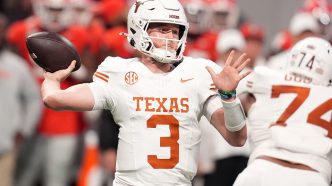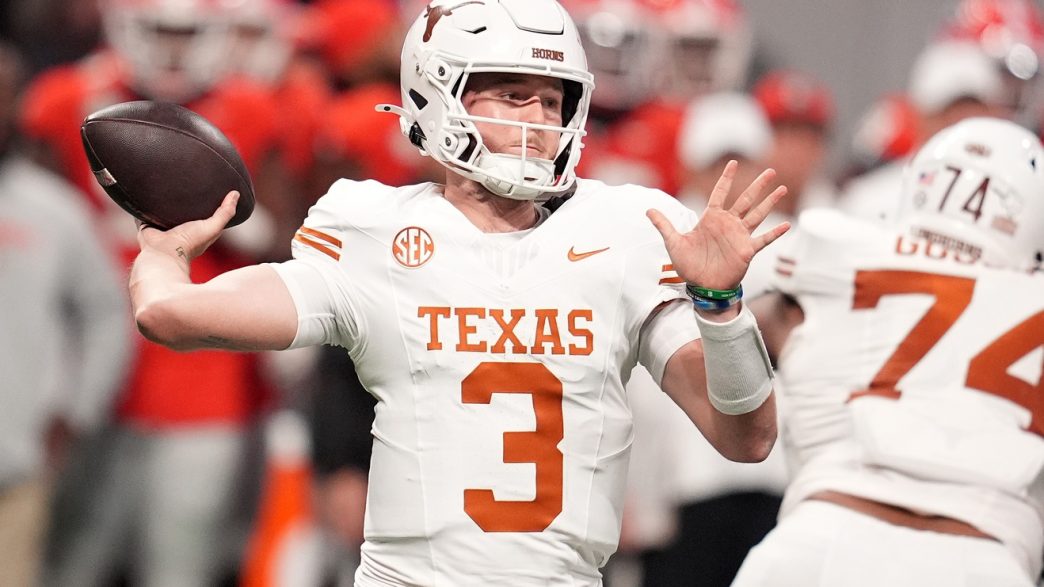As quarterback Shedeur Sanders made the decision to leave college football behind in favor of pursuing his NFL dreams, a parallel conversation has emerged surrounding another talented signal-caller: Quinn Ewers. The question of whether he should return to the college ranks for one more year has been buzzing through football circles, but sources indicate that Ewers has opted against that route.
The talented quarterback is walking away from a substantial payday by entering the draft, leaving at least $4 million on the table, with potential earnings estimated at up to $8 million had he chosen to transfer to Miami. Other programs like Notre Dame were reportedly interested as well, though it’s unclear how much they might have offered.
Instead of cashing in on a lucrative college opportunity, Ewers will likely see a slotted contract as the 231st pick in the draft. To put that in perspective, last year’s player chosen at that spot, Patriots tight end Jaheim Bell, signed a four-year deal worth around $4.126 million, which included a signing bonus of $108,740. Ewers’ contract will fall within a similar range, meaning his financial gain over four years with the Dolphins would be only marginally more than what he could have brought in with another season in college football.
It’s worth noting that Ewers faced significant hurdles in potentially returning to college. The current NCAA regulations pose a challenge as any player who enters the draft loses their college eligibility unless they successfully navigate legal avenues to contest those rules. It’s a complicated situation, one not easily resolved and certainly not guaranteed to succeed. Moreover, the Dolphins may not be happy if Ewers delays signing his rookie contract while battling these regulations.
The broader landscape of college football adds another layer of complexity. The NCAA’s timing for the January transfer portal, which opens during the college football playoffs, creates a hectic scenario for players considering their options. For Ewers, the timing was particularly tough; the Longhorns’ semifinal loss left him with only four days to explore a new program, ultimately pushing him to make the leap to professional football.
This raises the larger question of whether Ewers might have reached a different conclusion had he been afforded more time for reflection and strategic decision-making. It’s a scenario that highlights the urgent need for the NCAA to reconsider its policies. Players like Ewers, who are at a critical juncture between transferring or entering the NFL, deserve ample opportunity to evaluate their choices and make informed decisions about their futures. It’s a conversation that could reshape the landscape for student-athletes moving forward and ensure they don’t have to rush into decisions that can significantly impact their careers.








